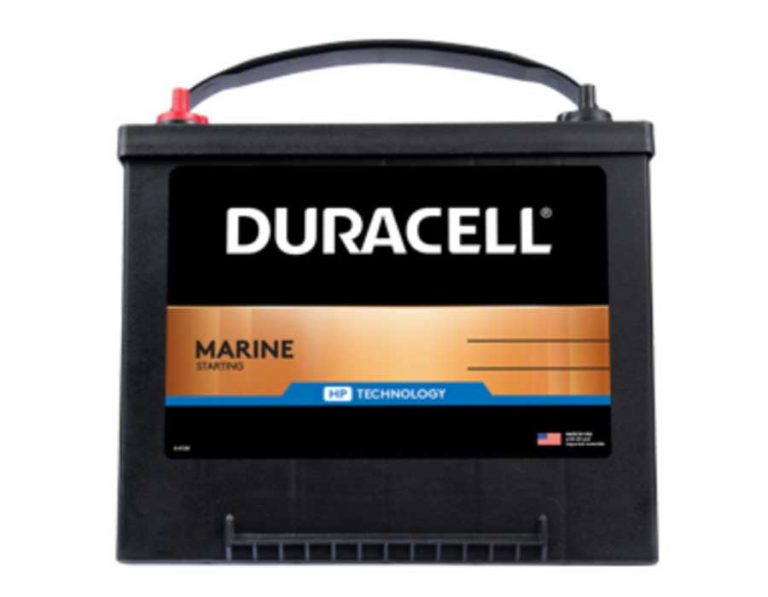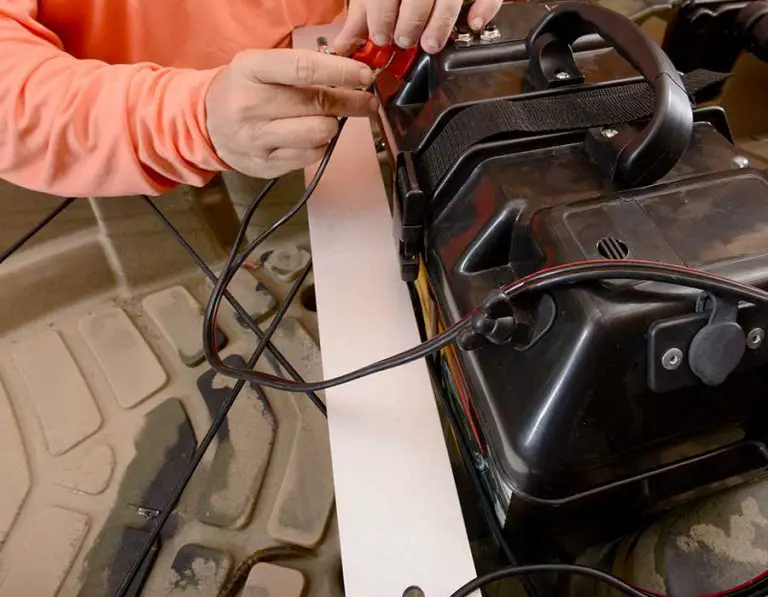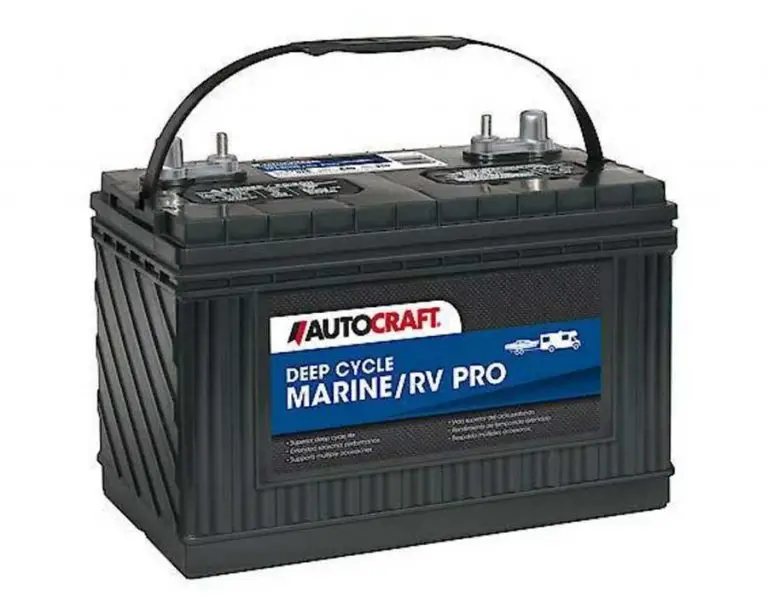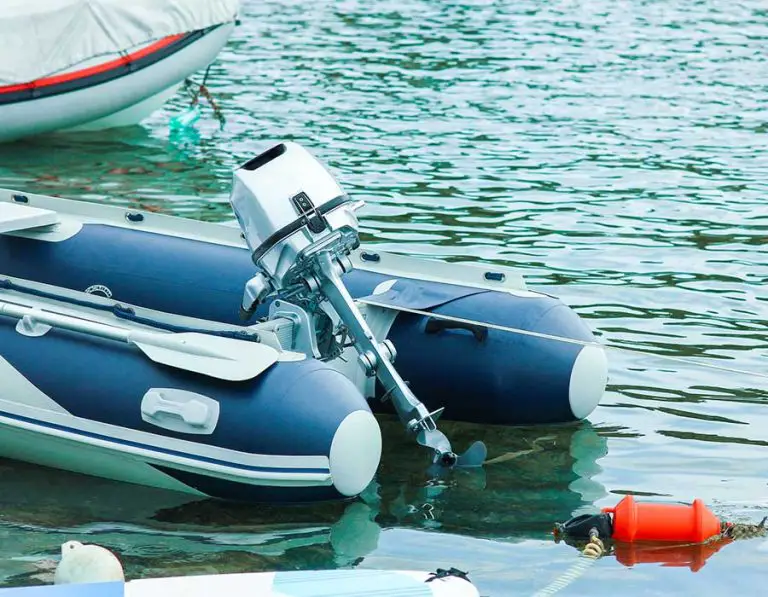Do Marine Batteries Come Charged?
Are you looking to buy a new battery for your boat? Or have you already purchased one and want clarity on the charge’s state on the battery?
A marine battery often comes with some charge from the factory. This is because batteries might get damaged or even die if left fully depleted for a long time. So, companies always charge them before shipping them out for sales. But before using it, we advise you to charge it fully.
What are Marine Batteries?
Marine batteries are made primarily for use on boats and have thicker plates and sturdy construction to handle the vibration and hammering that can happen on any powerboat. Due to this, marine batteries typically cost more than car batteries. And there are mainly three types of marine batteries:
- Starting Batteries: Starting batteries are created to start the engine and are quickly charged by the alternator. They produce quick but intense bursts of energy over brief periods. Trolling motors and other powering appliances shouldn’t be powered by starting batteries.
- Deep Cycle Batteries: These batteries are made to withstand hundreds of charging and discharging cycles while slowly discharging over an extended length of time. Electric trolling motors and other battery-operated devices like windlasses, fish locators, depth finders, and other devices should be powered by deep cycle batteries. It is not advisable to swap out deep cycle batteries for starting batteries.
- Dual-Purpose Batteries: When there isn’t enough room for two batteries, dual-purpose batteries combine the characteristics of a beginning and deep cycle battery. They can serve as both a starting battery and a deep cycle battery. However, they are less effective than individual batteries.
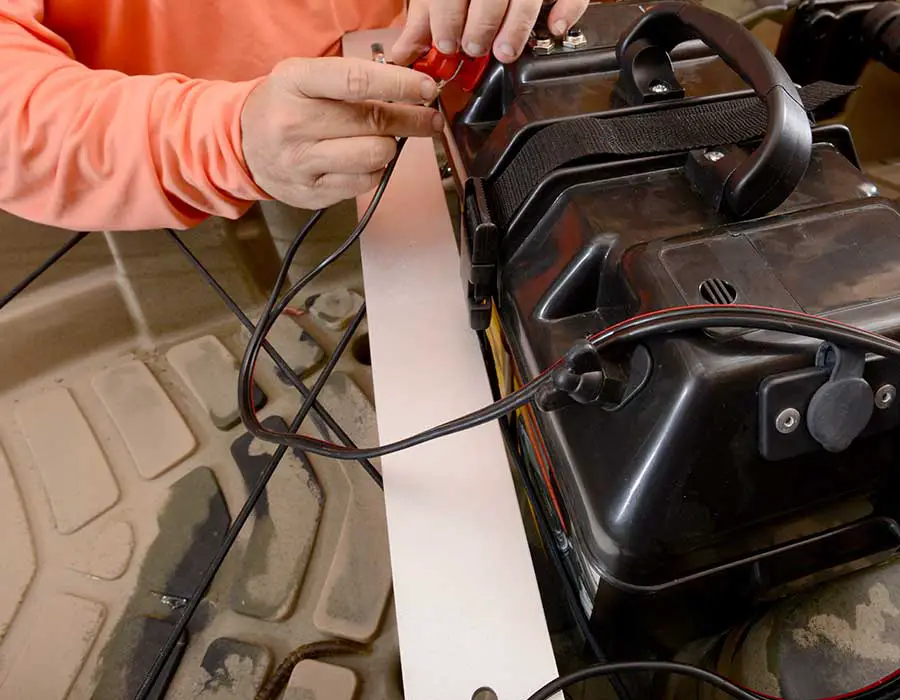
Does a Marine Battery Come Fully Charged?
Marine batteries don’t come fully charged. A marine battery often leaves the factory only half charged. While the batteries may still have some power, they probably won’t be enough to run your boat. But, on the other hand, it might be sufficient to give your boat a small kickstart.
It is, however, important to note that some batteries will come more charged than others. The reason for this is that typically, these batteries discharge over time. Hence, you might get a reduced battery charge by the time the battery gets to you. You should also note that better-quality batteries will have a slower discharge time, while lesser-quality batteries will discharge faster.
How Long Do Marine Batteries Last?
There is no straightforward answer to this question. A marine battery’s lifespan can be impacted by various elements, including how it is used, how well it is maintained, and the battery’s quality. Usually, marine batteries last two to five years.
The best way to maintain the charge when not in use is to keep batteries on a “trickle” charger. In cold weather, a battery that is not charged and is not kept charged may freeze, leading to a broken case. Use it or lose it applies to many things in life, including batteries. Considering that a car is used frequently and the battery is kept charged, a car battery will generally live longer than a boat battery.
A trickle charger is a unique kind of battery charger made to charge a car battery extremely slowly and at a meager rate. The fact that they charge slowly and gradually is the origin of the term “trickle” chargers. The charge rate is often almost equal to the battery’s average self-discharge rate. As a result, there is little to no risk of the battery being overcharged and harmed due to leaving the charger connected for an extended period.
How Long Does it Take to Charge a New Marine Battery?
It would help if you charged your marine batteries before use. You wouldn’t want a boat’s battery to be partially charged and break down in the middle of nowhere.
The size of your battery and the kind of charger you are using will determine how long it takes to charge your entire battery system. For example, a 12-volt battery may be fully charged in around eight hours using a typical charger. In comparison, better chargers can charge as fast as four hours.
Another question you might want is how you would know when to stop charging your battery. Nowadays, the majority of chargers provide a percentage indication of the battery. This will help you avoid overcharging your battery. Therefore, once the batteries reach 100%, we advise you to unplug them from the charger as soon as possible.
Find out your marine battery’s output voltage if you don’t have a smart charger. It would be best to charge the battery a little more than that output voltage. You can measure the voltage of your battery with a multimeter. If you have any doubt, we recommend you go to a professional. You don’t want to damage your battery in such a short time.
Conclusion
Marine batteries come with some power which most likely will not be enough to power your boat for a reasonable amount of time. Therefore, it is better to charge your battery fully before usage. And while charging, take precautions not to overcharge your battery, which is why we recommend a smart charger. If you have any doubt about how long you should charge your battery, seek the help of a professional.

